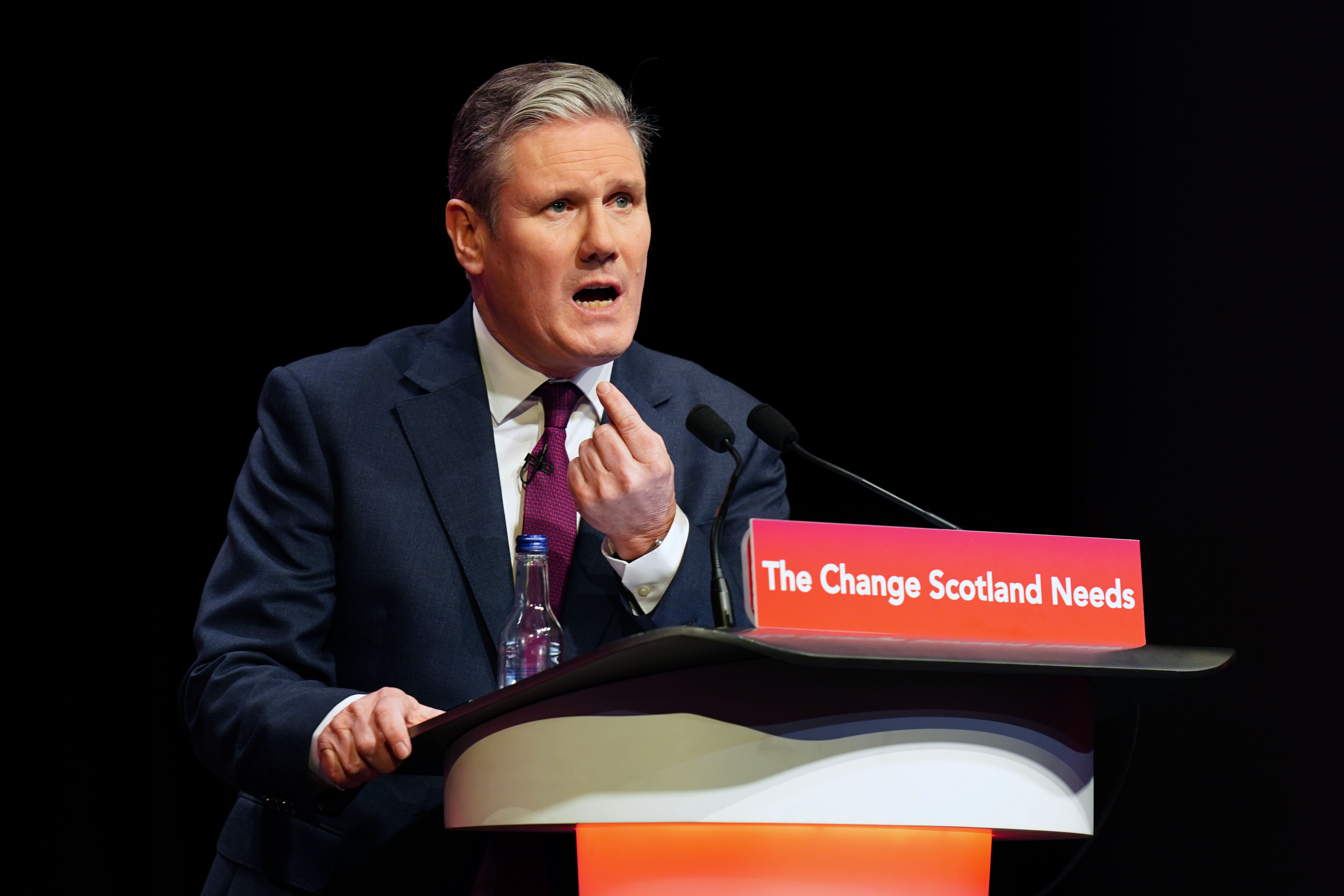Labour ‘can’t stop fighting for a second’ ahead of general election – Starmer
The Labour leader warned his party that the ‘volatile’ nature of politics means the Tories could still win another term in power.

Your support helps us to tell the story
From reproductive rights to climate change to Big Tech, The Independent is on the ground when the story is developing. Whether it's investigating the financials of Elon Musk's pro-Trump PAC or producing our latest documentary, 'The A Word', which shines a light on the American women fighting for reproductive rights, we know how important it is to parse out the facts from the messaging.
At such a critical moment in US history, we need reporters on the ground. Your donation allows us to keep sending journalists to speak to both sides of the story.
The Independent is trusted by Americans across the entire political spectrum. And unlike many other quality news outlets, we choose not to lock Americans out of our reporting and analysis with paywalls. We believe quality journalism should be available to everyone, paid for by those who can afford it.
Your support makes all the difference.The Tories can still win the next general election, Sir Keir Starmer has warned, as he said his Labour Party “can’t stop fighting for every vote, not even for a second”.
While polls across the UK have Labour on course to form the next government, placing Sir Keir in Downing Street, he said the “volatile” world of politics, meant it would be “ridiculous” to suggest that the Tories could not win.
He made the point as he addressed the Scottish Labour conference in Glasgow, attacking the SNP for wanting to use the upcoming election to “send a message” to Westminster.
Sir Keir told supporters there: “No matter what the SNP say, the Tories can win the next election.
“Of course they can, politics is volatile. It’s ridiculous to say otherwise.”
Adding Labour has a “mountain to climb” to return to power, despite its poll lead, he said: “We can’t get carried away. Can’t stop fighting for every vote, not even for a second.”
Insisting that another term of the Tories in power at Westminster would not be in “Scotland’s national interest”, Sir Keir added: “The easiest way to stop it, the only way to be sure of stopping it is to choose Labour to fight for Scotland in Westminster.”
His comments came as he warned that “Tory stagnation is a threat to Britain itself”, arguing that the “war on economic stability” under the Conservatives had “led to working people across Scotland turning their back on Britain”.
Speaking just days after it was confirmed the UK had gone into recession, he told the conference that this “isn’t just a line on a graph”.
Instead, Sir Keir said it was confirmation that a key ideal in Britain, the notion that if you work hard you can achieve anything, was “on life support”.
To counter this he said Labour must offer people a “better future”.
Sir Keir said: “Hope is the fuel of change, the oxygen of a better future. And that is what we must offer Scotland.
“Because after 14 years of Tory failure at Westminster, 17 years of SNP failure in Holyrood, only Labour can provide the change that Scotland needs.”
Attacking SNP leader Humza Yousaf, Sir Keir said drug deaths in Scotland are now “off the scale”, schools are “going backwards” and the NHS is in a “terrible crisis”.
Telling supporters that the Scottish First Minister wants to “send a message to Westminster” in the general election, Sir Keir hit out: “Send a message. With all the problems this nation faces, that is the level of his ambition for Scotland. Send a message.”
He added: “I’m afraid this is the story of the SNP now, they’re not interested in fixing Scotland’s problems, they want to exploit them.
“The mask has slipped. The pretence that they were ever interested in improving the lives of working people rather than using their problems as fuel for their grand cause, that has been exposed.”
He told voters Labour had a plan for “national renewal” that would get the country “back on our feet” and would build a “bond of respect between people and politics” again.
The Labour leader said: “You can’t tell me that Scotland does not deserve better. Because it does.
“And we will deliver it. A new Scotland. A new Britain. Bound together again by an old partnership, the solidarity of working people across four nations.”
While he accepted there would “always be a debate about Scotland’s constitutional future” he vowed that Labour would put Scotland “at the heart of the Westminster debate” promising this along with “more money for Scottish public services”.
Sir Keir said: “That’s change we can deliver for Scotland.”
But SNP MP David Linden said Sir Keir’s speech showed “only the SNP is offering people across Scotland the right to choose a stronger, fairer and more prosperous future as an independent country”.
Mr Linden, his party’s social justice spokesman at Westminster, added: “Starmer has made the values of his Labour Party clear – they will cap child benefits but not bankers’ bonuses, they will support a hard Brexit, they will keep the rape clause. Those are not Scotland’s values.”
Scottish Conservative chairman Craig Hoy hit out Labour’s “destructive oil and gas policies”, saying plans for a windfall tax on energy firms have been “roundly criticised by Scottish businesses”
He added: “Labour are betraying North Sea workers and abandoning a crucial Scottish industry.”
Ryan Crighton, policy director at Aberdeen and Grampian Chamber of Commerce, also condemned Labour’s “windfall tax, exploration ban and removal of investment allowances”, saying: “The outcome of these proposed policies could be anywhere between 20,000 and 100,000 job losses.
“Even trade unions are drawing comparisons with the closure of the UK’s coal pits in the 1980s.”